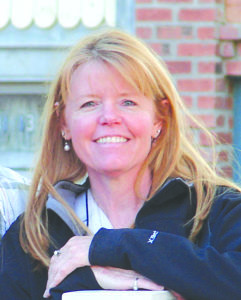 As an audiologist, I see hearing-impaired individuals every day. One of the most rewarding activities of my job is to teach the family members what it is like to have a hearing loss and how to better communicate with hearing-impaired people.
As an audiologist, I see hearing-impaired individuals every day. One of the most rewarding activities of my job is to teach the family members what it is like to have a hearing loss and how to better communicate with hearing-impaired people.
What Can the Hearing-Impaired Person Hear?
I think that understanding what a person really can and can’t hear is the key to successfully living with or working with a hearing-impaired person. It is crucial to understand what can change the clarity of your voice for a person attempting to comprehend what you are saying.
For argument’s sake, let’s select the most common hearing loss to use in our discussion. That would be a high-frequency hearing loss. Now, we will put lovely hearing aids on, which have been programmed by your favorite audiologist! That individual is now being given sound to augment what they hear without amplification. Can this person hear the same as you? I am sorry to say, no. The individual is able to hear more sounds that are used for speech and also hear room noise that is sharing the same pitches as speech. Our patient can hear water running, cinders crunching under their feet, paper rustling and other high pitch sounds. He or she can hear your voice much easier (note the word easier) but not perfectly. The individual can now hear the competitive speech sounds in the same room. The damage in the hearing organ is still there. In essence, even as a person wears hearing aids, he or she is still hearing impaired, but the hearing is aided.
Filtered Speech You Can Hear Online
There are some amazing websites that play a variety of sound samples for the normal hearing person to hear speech through a damaged hearing organ. It is a remarkable learning experience to listen to the samples and step into the shoes of an individual who lives in a world with this type of hearing. After listening to the samples, imagine going to a church service or a meeting with the “sample ears.” How loud would you need to turn the TV? Now imagine sitting in your favorite chair reading a book and suddenly hearing the demonstration sentence start up. Would you be able to understand it? If you turn the “sample ears” louder, does it eliminate all the difficulty or do you still need to concentrate on what is being said? Do you think that you could relax and listen as people were talking in a group setting?
You will notice on the websites that speech in noise is separate from the speech in quiet. Listen to the difference. Notice how noise is a significant distraction to the desired sentence on which you are concentrating.
The website called The Real Sounds of Hearing provides sentences with filtered sound, giving you unique insight into the life of a hearing-impaired person. Go to:
http://www.npr.org/blogs/health/2013/04/06/175945670/the-real-sounds-of-hearing-loss.
This website is provided by Audrey Carlsen. She demonstrates to the listener how it is to hear with the high frequencies missing. In another sample, she demonstrates what it sounds like with a flat hearing loss. A flat hearing loss causes you to miss all the soft sounds of speech.
Another site is the Phonak website: type in “Phonak hearing loss simulation.” You will find samples of speech, music, bird song and other sounds commonly heard every day with a comparison of a normal hearing individual with that of a person with a hearing loss. One of the most glaring differences is how they each hear sounds if there is background noise. The damage in the ear creates difficulty separating the noise from the sound on which you want to focus.
I hope those of you who do not own a computer will go use a family member’s or friend’s computer to listen to these samples. You could go to your audiologist’s office and ask to hear the samples. Another suggestion is to go the public library. A librarian will be able to help you find the websites and help you use the computer.
If you live with or work with someone who is experiencing hearing loss, you will likely find this knowledge profound. My experience is that the normal hearing family members are moved to tears as they finally understand what their loved one is experiencing. QCBN
By Karon Lynn, Au.D.
Trinity Hearing Center is located at 1330 N. Rim Dr., Suite B in Flagstaff. For more information, visit TrinityHearing.net.
Karon Lynn, Au.D., is a doctor of audiology with 30 years of experience working with hearing impaired individuals. Dr. Lynn may be reached at 928-522-0500 or at audio@trinityhearing.net.






Leave a Reply